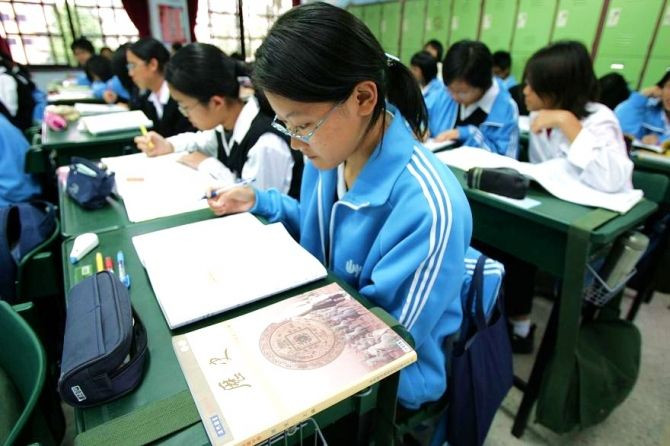Eyedrops Help Prevent Vision Problems In Kids: Study
Myopia or nearsightedness is irreversible and quite common. Once the condition takes root, there is no return to normal vision. But a new study has seemingly shed light on how to delay or prevent this vision problem.
Researchers in Hong Kong conducted a study to find out how dilating eyedrops could delay the onset of myopia in children. Specifically, they tested low-concentration atropine eyedrops to find out how they affected the incidence of nearsightedness in young people. They then presented their findings in their study published in JAMA Network.
For the randomized clinical trial, 474 kids aged 4 to 9 without myopia were followed for two years. They were grouped into three. The first group received 0.05% atropine nightly. The second had 0.01% atropine, while the third got the placebo. The cumulative incidence of myopia was reported per group. The first recorded 28.4%, the second had 45.9% and the placebo reported 53%.
The researchers recognized the difference between the 0.05% atropine group and the placebo to be statistically significant, suggesting that the solution helped delay nearsightedness in the former. However, they also admitted that further research is needed to establish the findings.
“Although 0.05% atropine eyedrops resulted in a significantly lower incidence of myopia at 2 years compared with placebo, further research is needed to replicate the findings and to understand whether this represents a delay or prevention of myopia,” they wrote.
Based on the statistical map of Prevent Blindness America, the overall national rate of myopia in the U.S. is 24% for people aged 40 and above. This means an estimated 34 million older Americans are nearsighted. On the other hand, the National Eye Institute said the total percentage of nearsighted Americans is already at 41.6%, up from the 25% reported incidence in 1971.
Meanwhile, the Centers for Disease Control and Prevention (CDC) indicated on its website that about 6.8% of children below 19 in the U.S. had been diagnosed with eye and vision problems. Nearly 3% of kids below 18 are blind or visually impaired.
Apart from genetics, environmental factors also play a role in the development of myopia. Once it starts, the process is irreversible and could lead to other vision problems, including macular degeneration, retinal detachment, cataracts and glaucoma.
"Myopia is an ongoing and growing worldwide concern. This is of particular importance because of the change in children's lifestyle, such as decreased outdoor time and increased screen time during and after the COVID-19 pandemic," Jason C. Yam, MPH, of the Department of Ophthalmology and Visual Services at the Chinese University of Hong Kong, told Medscape.
Yam, who was involved in the new study, also worked on a previous scientific report published in 2020. In his earlier work, he and his colleagues found that 0.05% atropine eyedrops helped delay the progression of myopia in children aged 4 to 12 who already had the condition.




























